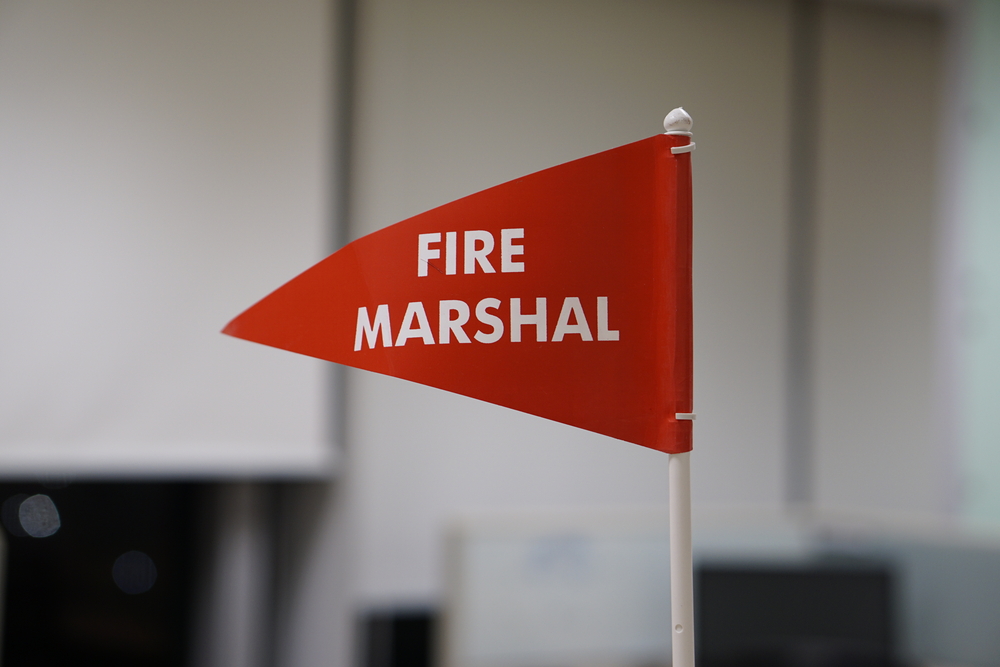When you’re asked to become your workplace’s fire marshal, it can be quite daunting. It’s a lot of responsibility, you may not have all the information you need to accept/decline the post and you may be concerned about the pressure of such a vital, necessary additional job. We speak to many employees when they attend our Fire Marshal Training Courses who often have many questions about fire marshal responsibilities that come with the role so we thought we would address some of those concerns on our blog today. The following list was on fire-risk-assessment-network.com and we thought it gave a great insight into what would be expected of you should you take on the role of fire marshal…
Daily Responsibilities of a Fire Marshal
- Ensuring that all evacuation routes to be used in case of fire remain unobstructed;
- Carrying out routine housekeeping to get rid of materials that pose the risk of a fire, such as rubbish;
- Checking to see that hazardous/flammable materials are properly stored;
- Making sure that fire safety signs are properly placed;
- Ensuring that emergency evacuation signs are functioning properly;
- Ensuring that all firefighting equipment is properly stored and regularly serviced;
- Checking to see that fire detection equipment and fire alarms are functioning optimally every week;
- Nominating deputies who will help ascertain that the building is fully compliant with fire safety regulations;
- Mapping evacuation routes to be used in case of a fire;
- Determining fire assembly points;
- Arranging and conducting fire drills;
- Training new employees on the fire safety protocols to be followed in the event of a fire;
- Ensuring that electrical connections are tested for compliance with fire safety regulations;
- Maintaining records on any fire safety activities carried out in the building.
Responsibilities of a Fire Marshal in a Fire Emergency
- Raising the alarm when a fire starts;
- Ensuring that fire doors and doors to other fireproof spaces are closed;
- Ensuring that people who have vulnerabilities are assisted in evacuating in case of a fire safely;
- Carrying out a roll call to ensure every person has been evacuated when a fire starts;
- Liaising with emergency response personnel who respond at the scene of the fire;
- Using firefighting gear to curb the spread of the fire if it is safe to do so.
This list was originally published on fire-risk-assessment-network.com.
At Total Safe UK, we regularly run Fire Marshal Training Courses – our short, inexpensive fire marshal training courses in the South East can help save people and property in case of a fire. Get in touch if you have any questions about these or book your fire marshal training course today.

